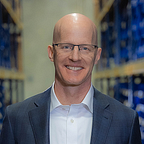You Don’t Need to Know What You Want to Do
People always ask recent graduates and young job candidates “What do you want to do?”. Everyone always wants job seekers to answer “Where do you see yourself in five or ten years?”. Here’s the reality: You don’t need to know. You don’t need to know what you want to do. You don’t need to have your career path mapped out. You only need to be YOU.
A common misconception among younger people and job seekers is that they must know their professional desires and plans. Exceptionally few people know what career or professional path that they wish to take. Almost everyone finds that their initial ideas about their career path and aspirations do not match reality and change appreciably with experience and time. That’s completely normal, and, in fact, it is for the best. How can you possibly know what you want to do for a living without any experience in a work setting? How can you possibly anticipate the chance encounters that you will have along the way or the interesting topics that you will discover? Many of these experiences will teach you more about yourself and the environments and roles where you excel. And how could you possibly know the types of sacrifices required to earn a higher income? Answer: You can’t. You can’t possibly predict where life will take you or how events will unfold.
Here’s what you can do. Trust your gut reaction and instincts about any potential opportunity that you consider. Get in touch with the roles, products and services, and types of companies that are interesting to you. Identify the industries and workplace surroundings that generate excitement for you. Read job postings. Surf company websites. Learn about products and services. When you learn about a company or role, imagine yourself going to work in that city, facility, and position, working with the products and the people involved. Which ones ignite a sense of possibility and which ones make you feel like vomiting? Find the roles and work environments that immediately energize you. Avoid the roles, companies or industries that make your stomach turn or elicit a stress reaction.
In my case I loved global business and travel, and so I elected to utilize my engineering skills in my first job at an airline rather than a defense company, which I imagined as a very slow and plodding environment. I knew that my interests and natural abilities revolved around numbers, analysis, logic, finance and accounting. I knew that I had a natural ability to think about business strategy and imagine a company’s future direction. I also knew that I would not excel in routine, repetitive roles. Or sales positions — just not my thing. I knew that I gravitated toward fast-moving manufacturing companies that made tangible, uniquely American products like airplanes and automobiles. In big manufacturing, warehouse and open office physical environments. With plenty of technology and operational complexity. And I knew that I needed lots of change — dynamic environments where I could learn.
I chose well, and I also made many mistakes. You will too. The key is to correct those mistakes quickly once you recognize them. Move on. There are no guarantees. Choices and change always involve risks. But don’t think that you face less risk if you remain in one job for a very long time. The opposite is true — the more skills and experience you have in varying roles and work environments, the more versatile and valuable you become and the more money you will earn. Don’t stand still waiting for good things to come your way — MAKE them happen.
But do it your way. Not my way, not your father’s or mother’s way, not your friend’s way. Your way. The world doesn’t need you to follow another person’s path or be like someone else — the world already has that other person — now the world needs YOU.
Go your own way. Trust your instincts about the choices right in front of you. The path and the math will happen naturally.
